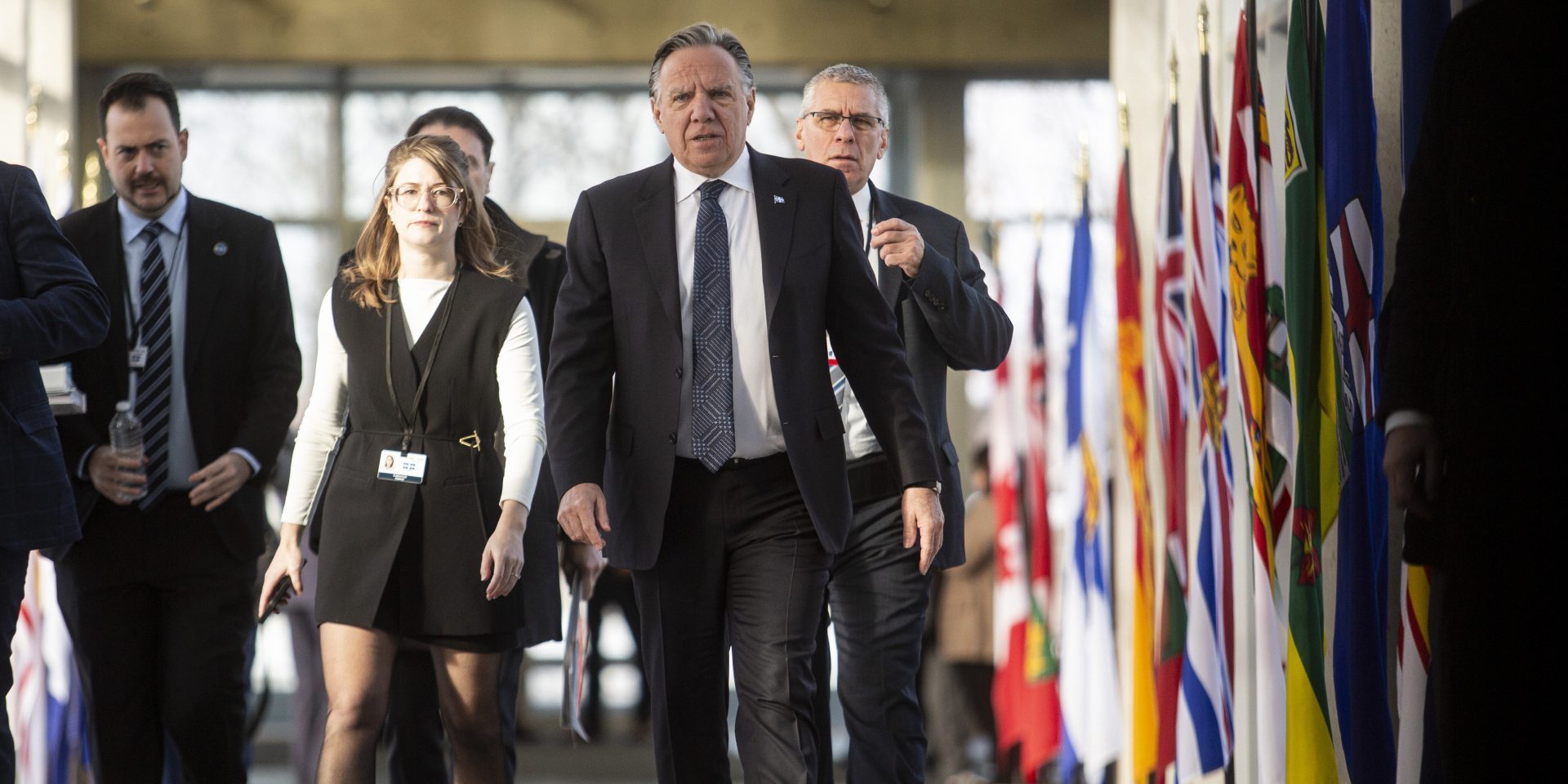The notwithstanding clause threatens our democracy

KAMOURASKA, QUE.—Are Quebec’s anglophones and allophones Canada’s canaries in the constitutional coal mine? That thought struck me last week while chairing a remarkable webinar on Section 33 of the Canadian Charter of Rights and freedoms, otherwise known as the notwithstanding clause. The clause, you will remember, cancels out fundamental, equality, or legal rights detailed in sections 2 and 7 to 15 of the Charter.
In recent years, the Quebec government of Premier François Legault has used the clause extensively, most notably in the so-called “Secularism Law,” Bill 21, and the changes to the Charter of the French Language, Bill 96. This Quebec law bans people from working as teachers, lawyers, police officers, if they wear religious symbols or clothing.
In January, the Supreme Court of Canada agreed to hear an appeal of Bill 21, which has made its way through Quebec Superior Court and Quebec’s Court of Appeal. The focal point of the case will be the pre-emptive use of the notwithstanding clause. In both Quebec hearings, the judges said the notwithstanding clause prevented them from examining Bill 21.
As a result, the clause has been much in the news in Quebec, and of great concern to non-francophones. The group I lead, the Task Force on Linguistic Policy, has applied to be an intervenor at the Supreme Court hearing. To promote dialogue, we hosted a two-hour webinar last week on the notwithstanding clause.
It began with a historical perspective from former journalist Graham Fraser. He took us back to the 1980s, when he covered the constitutional battles featuring then-prime minister Pierre Elliott Trudeau and the premiers, notably Parti Québécois leader René Lévesque. He revealed the initial deal on the Constitution was welcomed with cheers at Lévesque’s office in Quebec City, until they realized Quebec was shut out of the deal by the other provinces and Ottawa, in what was subsequently called “the Night of the Long Knives” in the province.
International law expert and McGill University professor Pearl Eliadis pointed out Canada signed the International Covenant on Civil and Political Rights, which means the United Nations Human Rights Committee could decide on the use of the clause. “The international framework for human rights is very clear… [you can’t] derogate from equality and non-discrimination rights—and those are precisely the ones that are being violated by laws like Bill 96 and Bill 21,” she said.
The discussion then moved to a panel, which included the chairman of the English Montreal School Board, Joe Ortona, who is one of the parties challenging Bill 21 on the grounds teachers should be hired for their abilities, not for what they wear.
Prominent Montreal lawyer Eric Maldoff has been involved in language rights issues since the 1970s. He was quite blunt: thanks to the notwithstanding clause, “we have a rule-of-law problem. Your rights don’t exist.” He suggested a courageous Supreme Court should declare the notwithstanding clause inappropriate, and if not, judges should clearly identify what rights have been taken away.
The Task Force’s lawyer, Michael Bergman, will be pleading against Bill 96. He outlined how rights existed in British and Canadian law before they were “codified” in the Charter. “The Charter did not give us rights; it simply provided guarantees of rights, so the Charter is not necessarily the last word on rights.”
Lawyer Marion Sandilands clerked at the Supreme Court, and has been involved in several high-profile cases. In the Bill 21 case, she said the Court has many options, including reviewing the use of section 33, and striking down Bill 21 on the basis of two sections outside the purview of the clause, sections 23 (minority language rights) and 28 (gender equality).
The Bill 21 case has already attracted almost 30 intervenors; the nine Supreme Court judges will have to decide if the notwithstanding clause completely extinguishes the fundamental and legal rights of Canadians.
If that is the case, as Brian Mulroney once said, the Charter of Rights and Freedoms “is not worth the price of the paper it’s written on.” The rights of Canadians to peaceful assembly and elections, protection from illegal search and seizure, a fair trial, and so many aspects of our democracy could be wiped out by any government with the use of the notwithstanding clause.
Andrew Caddell is retired from Global Affairs Canada, where he was a senior policy adviser. He previously worked as an adviser to Liberal governments. He is a town councillor in Kamouraska, Que. He can be reached at pipson52@hotmail.com.
The Hill Times






 LICENSING
LICENSING PODCAST
PODCAST ALERTS
ALERTS


